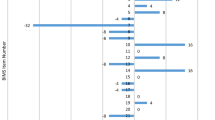Abstract
School education in Australia is a complex interplay between federal and state governments, and between government and non-government schools. This article explores the supervision of schools in Australia through school accountability systems. Utilising publicly available documents a systematic analysis of the state and territory systems for government schools is provided. It is a paper that attempts to document rather than critique school accountability, although a conceptual framework utilising contractual, moral and professional accountability is used to analyse the different accountability processes reported upon. Contractual and moral accountability is supported by most systems, whilst there is potential to foster professional accountability in only two systems. Fostering professional accountability is important because this is where the internal motivation of teachers helps to drive school improvement. When compared to leading-edge systems, Australian accountability systems are lacking in judgements on teaching practice in individual classrooms, and the use of sophisticated measures of learning and value-added analysis.
Similar content being viewed by others
References
AEU (Australian Education Union) (2004). Increasing accountability of private schools. AEU Federal Election Fact Sheet No. 11. Melbourne: AEU.
Auditor-General NSW (2004). School annual reports. Department of Education and Training, Sydney: Auditor-General NSW.
Department of Education and Training (Victoria) (2004). Diagnostic school review information pack. Melbourne: School Accountability and Improvement Unit, School System Development Division.
Department of Education and Training (ACT) (2006). School excellence: Improvement and achievement in ACT government schools in 2005. Canberra: Department of Education and Training.
Department for Education and Skills and Office for Standards in Education (DfES/OfSTED) (2004). A new relationship with schools. London: DfES & OfSTED.
Elmore, R. F. (2003). Knowing the right thing to do: School improvement and performance-based accountability. Washington, DC: NGA Center for Best Practices. Accessed February 2, 2005 from www.nga.org/center/divisions/1,1188,T_CEN_EDS^C_ISSUE_BRIEF^D_5843.00.html
Elmore R.F. (2005). Accountable leadership. The Educational Forum 69(2): 134–142
Giles, C., Jacobson, S., Johnson, L., & Ylimaki, R. (2007). Against the odds: Successful principals in challenging U.S. schools. In C. Day & K. Leithwood (Eds.), Successful principalship: International perspectives. Dordrecht: Springer.
Grimshaw, W. A. (2002). Review of non-government schools in NSW. Report 1, accessed April 2005 from https://www.det.nsw.edu.au/reviews/ngsreview/report1.pdf
Grubb W.N. (2002). Opening classrooms and improving teaching: Lessons from school inspections in England improving teaching through school inspections. The Teachers College Record 102(4): 697–721
Gurr, D. (1999). From supervision to quality assurance: the case of the state of Victoria (Australia). Paris: International Institute for Educational Planning.
Gurr D. (2001). School monitoring and quality assurance in australia. Hot Topics, 2, 2 pp. Also published in Leading and Managing 9(2): 196–199
Gurr D. (2002). Reporting school performance. Hot Topics, 4 ppAlso published in Leading and Managing 9(2): 177–180
Gurr, D. (2003). Self-directed school reviews. Hot Topics, 2. Also published in Leading and Managing, 9(2), 169–172.
Gurr D. (2007). A review of school accountability in Australia. International Journal of Knowledge, Culture and Change Management 6(7): 171–182
International Institute for Educational Planning (IIEP) (1997). Improving teacher supervision and support services for basic education: Project document. Paris: IIEP.
Learmouth J. (2000). Inspection: What’s in it for schools?. London: RoutledgeFalmer
Mok, M. M. C., Gurr, D., Izawa, E., Knipprath, H., Lee, I. H., Mel, M., Palmer, T. Shan, W. J. & Zhang, Y. (2003). Quality assurance and school monitoring. In J. P. Keeves, R. Watanabe, (Chief Eds.), & Y. C. Cheng (Section Ed.), International handbook of educational research in the Asia-Pacific region: Section 6. Organization and management of education. Dordrecht: (Vol. 11, pp. 945–958) Kluwer International Handbooks of Education.
Queensland Board of Senior Secondary School Studies (1999). Principles for the integrity, quality and long-term credibility of certificates of achievement. Brisbane: Queensland Board of Senior Secondary School Studies.
Radii (2005). Planning and accountability for school improvement: National and international literature review. Report prepared for the student outcomes division of the victorian Department of Education and Training. Available from cuttance@bigpond.net.au.
Sinclair A. (1995). The chamelon of accountability: Forms and discourses. Accounting, Organizations and Society 20(2/3): 219–237
Stevens, C. (in print). Quality assurance in catholic secondary schools: A policy study.Unpublished Doctor of Education Thesis, The University of Melbourne.
Author information
Authors and Affiliations
Corresponding author
Rights and permissions
About this article
Cite this article
Gurr, D. Diversity and progress in school accountability systems in Australia. Educ Res Policy Prac 6, 165–186 (2007). https://doi.org/10.1007/s10671-007-9021-2
Received:
Revised:
Accepted:
Published:
Issue Date:
DOI: https://doi.org/10.1007/s10671-007-9021-2




